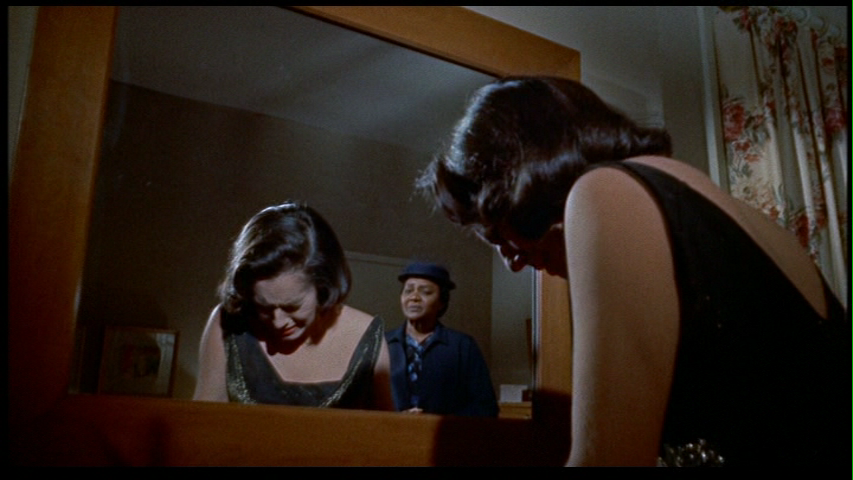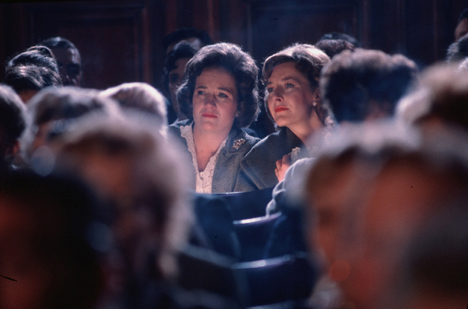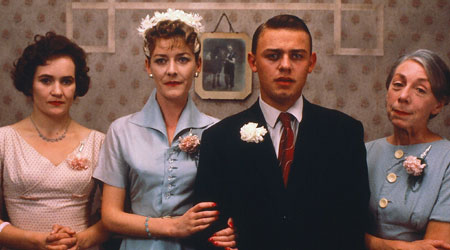From the Chicago Reader (April 1, 1995). — J.R.



My favorite Douglas Sirk film — made in Germany in 1936, when he was still known as Detlef Sierck — is a dazzlingly cinematic, fast-moving melodrama built around classical music; it’s alternately perverse, exalted, and delirious. Shuttling back and forth between New York and Berlin with an ease that suggests those cities were in closer proximity to each other in the 30s than they are today, the opening sequences present a destitute widow (Maria von Tasnady) recovering her will to live by listening to Beethoven’s Ode to Joy on the radio, broadcast live from Germany, where the conductor (Willy Birgel) is coincidentally in the process of adopting her little boy. When she returns to Berlin she goes to work as the boy’s nanny, concealing the fact that she’s his mother, while the conductor’s less musically inclined wife (Lil Dagover) tries to break free from an astrologer-blackmailer who’s threatening to expose her adultery with him. There’s also a creepy and seemingly malevolent maid, a climactic trial, and several sequences involving music and duplicity that produce some astonishing visual candenzas and editing rhyme effects. (This is the film that inspired Sirk to note that camera angles are a director’s thoughts and lighting is his philosophy.) Read more
From the August 27, 1980 issue of The Soho News — only slightly tweaked almost three decades later. –J.R.


Douglas Sirk in Germany: Four Films
Museum of Modern Art, Aug. 15-18
It must have been in the late spring of 1959 — surrounded mainly be weeping matrons at a matinee of Imitation of Life in Florence, Alabama — that I first tangled with the considerable talents of major melodramatist Douglas Sirk. At the time, these were focused on the task of encouraging white middle-class segregationists and racists to weep bittersweet buckets over the sentimental death of an Aunt Jemima figure named Annie (Juanita Hall), a nas ole cullid lady (as those matrons would have put it) who — unlike her sexy and evil light-skinned, teenage daughter, Sarah Jane (Susan Kohner) — knew her place, accepted her color as a necessary cross to bear, and then died of a broken heart when Sarah Jane rejected her.
Bearing in mind this particular praxis of Sirk’s last Hollywood film, I’ve always felt just a little querulous when armchair Marxists in London have patiently explained to me that Sirk was actually a Brechtian subversive back in the ’50s, boring from within — subtly and secretly criticizing our American values. Read more
From the August 18, 1989 Chicago Reader; this piece is also reprinted in my collection Essential Cinema. — J.R.

DISTANT VOICES, STILL LIVES
**** (Masterpiece)
Directed and written by Terence Davies
With Freda Dowie, Pete Postlethwaite, Angela Walsh, Dean Williams, Lorraine Ashbourne, Debi Jones, Michael Starke, and Vincent Maguire.

An autobiographical film about growing up in a Catholic working-class family in Liverpool in the 40s and 50s. Achronological glimpses of a traumatic family life, with particular emphasis on a funeral and two weddings. A collection of radio shows and nostalgic songs sung at parties and pub gatherings. A highly condensed, triple-distilled family album of faces and feelings organized around a few key locations. A series of emotional and visceral jolts whose brute power and intensity could not be conveyed by a conventional linear story. A seamless block of passionate memories defined by the beauty and terror of the everyday.
The problem with all these descriptions of Distant Voices, Still Lives is that though each is partially accurate, they only dance around the periphery of what is a primal experience; that they represent the shards of my attempts to describe the essence of a masterpiece that reinvents filmgoing itself. I saw it twice at the Toronto film festival last September, and twice again earlier this month, and the inadequacy of my efforts is largely due to the fact that great films have a way of imposing their own laws and definitions that ordinary descriptions can’t reach. Read more







